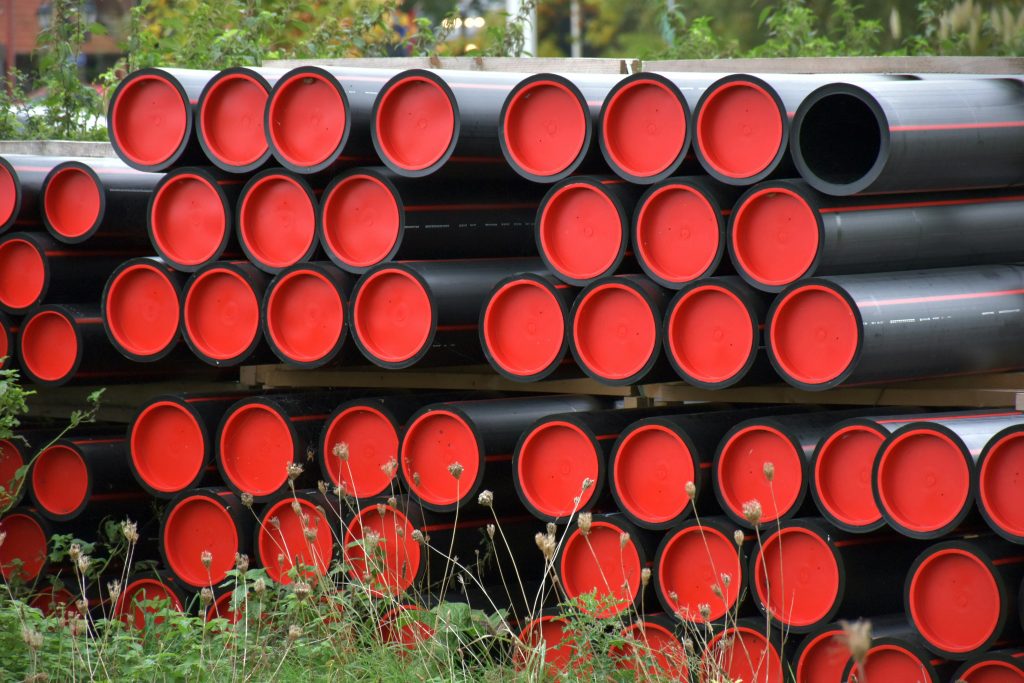Puerto Rico’s Fragile Grid: A Recurring Crisis Plunges Island into Darkness
## Puerto Rico’s Fragile Grid: A Recurring Crisis Plunges Island into Darkness
Millions of Puerto Ricans once again found themselves in darkness following another massive power outage that crippled the island’s electricity grid. The latest incident, impacting over 1.3 million customers – nearly the entire island’s population – has ignited a renewed debate about the island’s chronically unreliable infrastructure and its vulnerability to widespread blackouts.
While the immediate cause of the recent outage is being investigated, a failed underground power line is suspected. However, this isolated incident is merely a symptom of a much deeper problem: the persistent fragility of Puerto Rico’s power grid. The infrastructure continues to struggle with the lingering effects of Hurricane Maria, a devastating Category 4 storm that ravaged the island in 2017, causing catastrophic damage to the power grid and leaving a lasting scar on the island’s resilience.
The restoration process, expected to take 24 to 48 hours, highlights the complexities of the island’s energy system and the challenges posed by outdated technology and a lack of sufficient investment in modernizing the grid. This recurring pattern of island-wide blackouts not only disrupts daily life for residents but also poses significant economic risks to businesses, tourism, and the overall well-being of the community.
The reliance on a centralized energy system, along with a scarcity of resources to support preventative maintenance and upgrades, leaves the grid increasingly vulnerable to unforeseen events. This reliance creates a ripple effect, impacting critical services like hospitals, water treatment plants, and communication networks, exacerbating the consequences of any power failure.
The situation underscores the urgency for long-term solutions that address the root causes of the island’s energy woes. These must involve substantial investments in modernizing the power infrastructure, exploring alternative energy sources, and implementing robust emergency response plans. The ongoing failure of the electricity grid highlights a critical need for systemic change, not just immediate repairs. Until these fundamental issues are tackled, Puerto Rico will remain susceptible to these devastating and increasingly frequent blackouts, jeopardizing the lives and livelihoods of its residents.
The recurring blackouts underscore the need for a comprehensive overhaul of Puerto Rico’s energy infrastructure, one that embraces long-term solutions, resilience planning, and substantial investment in the island’s future.
Beyond the immediate crisis, the recurring outages raise critical questions about accountability, transparency and the allocation of resources to address this ongoing national crisis. The lack of sustainable investment and adequate preparedness is not just a technical problem but also a serious issue with implications for the social and economic well-being of the island’s inhabitants. The people of Puerto Rico deserve better; they deserve a reliable, resilient power grid that can withstand future shocks and contribute to the island’s long-term prosperity.
The failure of the power grid, once again, exposes the deep-seated structural vulnerabilities that continue to plague Puerto Rico. The path forward demands a comprehensive, multifaceted strategy that addresses the underlying causes of this recurring crisis and ensures a secure energy future for the island. The question remains: When will decisive action be taken to prevent the next blackout from plunging Puerto Rico into darkness?
Tags: Blackout, economic impact, electricity grid, Energy Crisis, Grid Failure, Hurricane Maria, Infrastructure, power outage, Puerto Rico, Puerto Rico power outages, Renewable Energy
Puerto Rico Plunged into Darkness: A Recurring Crisis Exposes Fragile Infrastructure
## Puerto Rico’s Recurring Power Crisis: A Nation Left in the Dark
On Tuesday, a massive power outage plunged over 1.3 million people in Puerto Rico into darkness, highlighting the island’s ongoing struggle with a fragile and unreliable energy grid. The widespread blackout, affecting nearly the entire island, renewed concerns about the island’s infrastructure and its ability to withstand even minor disruptions. Initial reports suggest a failure of an underground power line as the likely culprit, but the incident underscores a deeper, more systemic problem.
## A History of Instability and the Long Road to Recovery
This latest outage is unfortunately not an isolated incident. Puerto Rico’s energy infrastructure has been consistently vulnerable since Hurricane Maria devastated the island in 2017, causing widespread damage and leaving many without power for months. The recovery process has been slow and fraught with challenges, hampered by bureaucratic hurdles, financial mismanagement, and a complex web of regulatory issues. The private company responsible for electricity distribution, Luma Energy, has faced criticism for its handling of previous outages and for its perceived lack of preparedness, citing previous “financial mismanagement” as a contributing factor to the grid’s ongoing problems.
## The Human Cost of Power Failures
The impact of these repeated outages extends far beyond mere inconvenience. Businesses are forced to shut down, impacting the local economy and livelihoods. Hospitals and essential services struggle to operate, jeopardizing public health and safety. The constant uncertainty and disruption take a heavy toll on the mental and emotional well-being of the island’s residents. The loss of power on New Year’s Eve, for example, added insult to injury, highlighting the pervasive nature of the problem and the widespread frustration amongst the population.
## The Path Forward: A Critical Need for Investment and Reform
The recurring power outages underscore the urgent need for significant investment in upgrading and modernizing Puerto Rico’s energy infrastructure. This requires a multi-faceted approach, involving not only substantial financial resources but also comprehensive reform of the regulatory framework governing the electricity sector. Addressing the underlying issues of mismanagement and promoting transparency and accountability are crucial for ensuring the long-term reliability and resilience of the power grid. Simply restoring power after each outage is not a sustainable solution; a proactive strategy aimed at preventing future occurrences is essential.
## Looking Ahead: A Call for Action
The situation in Puerto Rico serves as a stark reminder of the vulnerability of energy infrastructure, particularly in the face of natural disasters and systemic weaknesses. The island’s struggle highlights the broader implications of underinvestment and lack of preparedness. Without swift and decisive action, the people of Puerto Rico will continue to endure the hardship and disruption caused by these frequent and debilitating power outages. The international community should take note and work towards supporting Puerto Rico’s efforts to rebuild a stronger, more resilient, and sustainable energy system. The future of Puerto Rico hinges on it. This is an ongoing story, and we will continue to provide updates as the situation unfolds.
Tags: Blackout, economic impact, Energy Crisis, Grid Failure, Hurricane Maria, Infrastructure, Luma Energy, power outage, Puerto Rico, Puerto Rico Power Outage, Renewable Energy
Cuba Faces Nationwide Blackout Amidst Deepening Energy Crisis
Cuba is in the grip of a severe energy crisis, with the entire population of 10 million being plunged into darkness following the catastrophic failure of its national electrical grid. This unprecedented blackout, which occurred on Friday, highlights the deteriorating state of the country’s energy infrastructure, compounded by economic turmoil and a lack of resources. Residents across the Caribbean island have voiced their alarm and frustration, with many expressing that they feel the nation has hit rock bottom.
The crisis was triggered by the outage of one of Cuba’s largest power plants, the Antonio Guiteras plant. This failure has been described as a critical blow to an already fragile system, which has struggled to maintain consistent electricity supply for weeks. Reports indicate that many areas have been experiencing rolling blackouts lasting up to 24 hours, leading to widespread discontent among the population.
The Cuban government recently announced emergency measures aimed at reducing electricity consumption, but these efforts were overshadowed by the sudden collapse of the grid. The situation has been further exacerbated by the country’s aging power plants and diminishing oil subsidies from Venezuela, a key ally. As the energy emergency unfolds, the island faces a daunting challenge in restoring power and addressing the underlying issues that have led to this crisis.
Experts have pointed to a combination of outdated infrastructure, mismanagement, and external economic pressures as contributing factors to Cuba’s ongoing energy woes. The lack of fuel has left many regions without a reliable electricity supply, forcing families to adjust their daily lives to cope with the erratic availability of power.
With the blackout now affecting millions, there are growing calls for the government to take decisive action to remedy the crisis. Citizens are demanding transparency and accountability as they navigate through this challenging period. The sense of urgency is palpable, with many wondering how much longer they can endure the hardships brought on by the power outages.
In the face of such adversity, the resilience of the Cuban people shines through as they organize community efforts to support one another. Neighbors are coming together to share resources, and local initiatives are emerging to help those most affected by the electricity shortages.
As the situation continues to unfold, the eyes of the world are on Cuba, with many hoping for a swift resolution to the energy crisis and the restoration of a stable power supply. However, the road ahead remains uncertain, as the country grapples with the complex interplay of domestic challenges and international relations that have long hindered its progress.
This blackout serves as a stark reminder of the vulnerabilities that can arise from an over-reliance on outdated systems and the critical need for investment in sustainable energy solutions. The Cuban government, along with its citizens, must now confront the reality of the energy emergency and work collectively to forge a path towards a more resilient and self-sufficient energy future.
Tags: Blackout, Cuba, Electricity, Energy Crisis



